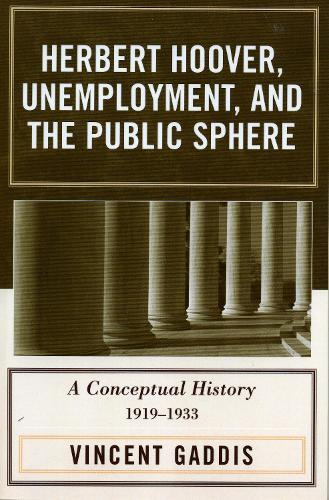
Herbert Hoover, Unemployment, and the Public Sphere: A Conceptual History, 1919-1933
(Paperback)
Publishing Details
Herbert Hoover, Unemployment, and the Public Sphere: A Conceptual History, 1919-1933
By (Author) Vincent Gaddis
By (author) Mary O. Furner
University Press of America
University Press of America
26th September 2005
United States
Classifications
Tertiary Education
Non Fiction
Economic history
Labour / income economics
973.916
Physical Properties
Paperback
208
Width 147mm, Height 227mm, Spine 17mm
313g
Description
Herbert Hoover, Unemployment, and the Public Sphere examines the fulfillment of Hoover's ideas in the area of unemployment between 1919 and 1933. The economic system Herbert Hoover envisioned, one based on cooperation and individual initiative with limited government, and the language he used to promote this system defined New Era discourse. His American Individualism, printed in 1923, served as the political philosophy of the administrations of the 1920s. In his discourse from 1919-1921, Hoover expanded the criteria- the conceptual definitions of virtue and liberty. The book includes a foreword by Mary O. Furner.
Reviews
Gaddis draws on research in personal manuscript collections, municpial records, local and state historical societies, printed autobiographies and biographies, and city newspapers to fill in the picture of how Hooverian response to the immediate crisis of unemployment in 1921 played out on the local level. * H-Net: Humanities and Social Science Reviews Online *
Author Bio
Vincent Gaddis is Associate Professor of American History at Benedictine University. Professor Gaddis holds a Ph.D. in United States Public Policy History from Northern Illinois University.
